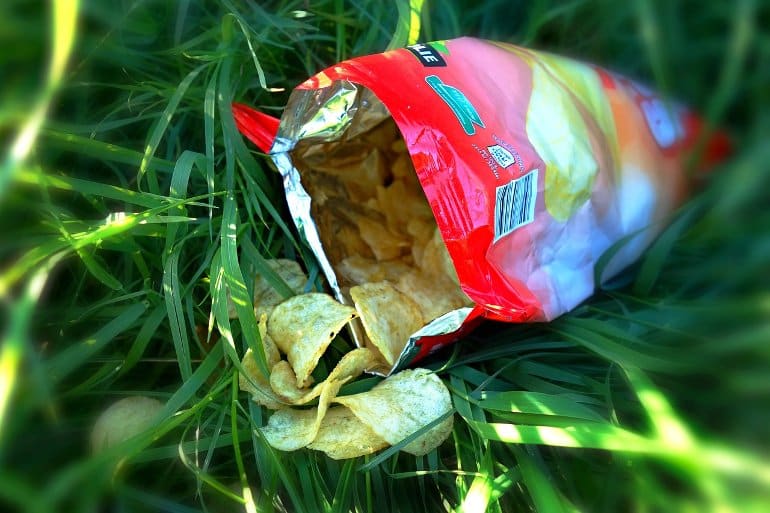Summary: Based on the criteria set for tobacco addiction, a new study reports that highly-processed foods can be addictive.
Source: University of Michigan
Can highly processed foods be addictive?
It’s a question that researchers have debated for years as unhealthy diets are often fueled by foods loaded with refined carbohydrates and added fats.
To find a resolution, a new University of Michigan and Virginia Tech analysis took the criteria used in a 1988 U.S. Surgeon General’s report that established that tobacco was addictive and applied it to food.
Based on the criteria set for tobacco, the findings indicate that highly processed foods can be addictive, said lead author Ashley Gearhardt, U-M associate professor of psychology, and Alexandra DiFeliceantonio, assistant professor at Fralin Biomedical Research Institute at Virginia Tech.
In fact, the addictive potential for food such as potato chips, cookies, ice cream and French fries may be a key factor contributing to the high public health costs associated with a food environment dominated by cheap, accessible and heavily marketed highly processed foods, the researchers said.
The research, published in the current issue of Addiction, offers evidence that highly processed foods meet the same criteria used to identify cigarettes as an addictive substance:
- They trigger compulsive use where people are unable to quit or cut down (even in the face of life-threatening diseases like diabetes and heart disease)
- They can change the way we feel and cause changes in the brain that are of a similar magnitude as the nicotine in tobacco products
- They are highly reinforcing
- They trigger intense urges and cravings
“Of note, there is no biomarker in the brain that tells us whether something is addictive or not,” Gearhardt said. “Identifying that tobacco products were addictive really boiled down to these four criteria, (which) have stood up to decades of scientific evaluation. Highly processed foods meet every single one of these criteria.”
DiFeliceantonio said the ability of highly processed foods to rapidly deliver unnaturally high doses of refined carbohydrates and fat appear key to their addictive potential.
Highly processed foods contain complex substances that cannot be simplified to a single chemical agent acting through a specific central mechanism. The same can be said for industrial tobacco products, which contain thousands of chemicals including nicotine, Gearhardt said.

When the Surgeon General’s report was released more than 30 years ago, tobacco products were the largest cause of preventable death. But many people and tobacco manufacturers resisted accepting their addictive and harmful nature.
“This delayed the implementation of effective strategies to address this public health crisis, which cost millions of lives,” said Gearhardt, who directs U-M’s Food and Addiction Science and Treatment lab.
“When we realized tobacco products were addictive, it made us realize that smoking wasn’t just an adult choice, but that people were getting hooked and couldn’t stop even when they really wanted to. This same thing appears to be happening with highly processed foods and this is particularly concerning because kids are a major target of advertising for these products.”
Poor diets dominated by highly processed foods now contribute to preventable deaths on par with cigarettes. Similar to tobacco products, the food industry designs their highly processed foods to be intensely rewarding and hard to resist, the researchers said.
“It is time to stop thinking about highly processed foods just as food, but instead as highly refined substances that can be addictive,” DiFeliceantonio said.
About this food and addiction research news
Author: Press Office
Source: University of Michigan
Contact: Press Office – University of Michigan
Image: The image is in the public domain
Original Research: Open access.
“Highly processed foods can be considered addictive substances based on established scientific criteria” by Ashley N. Gearhardt et al. Addiction
Abstract
Highly processed foods can be considered addictive substances based on established scientific criteria
Background
There is growing evidence that an addictive-eating phenotype may exist. There is significant debate regarding whether highly processed foods (HPFs; foods with refined carbohydrates and/or added fats) are addictive. The lack of scientifically grounded criteria to evaluate the addictive nature of HPFs has hindered the resolution of this debate.
Analysis
The most recent scientific debate regarding a substance’s addictive potential centered around tobacco. In 1988, the Surgeon General issued a report identifying tobacco products as addictive based on three primary scientific criteria: their ability to (1) cause highly controlled or compulsive use, (2) cause psychoactive (i.e. mood-altering) effects via their effect on the brain and (3) reinforce behavior. Scientific advances have now identified the ability of tobacco products to (4) trigger strong urges or craving as another important indicator of addictive potential. Here, we propose that these four criteria provide scientifically valid benchmarks that can be used to evaluate the addictiveness of HPFs. Then, we review the evidence regarding whether HPFs meet each criterion. Finally, we consider the implications of labeling HPFs as addictive.
Conclusion
Highly processed foods (HPFs) can meet the criteria to be labeled as addictive substances using the standards set for tobacco products. The addictive potential of HPFs may be a key factor contributing to the high public health costs associated with a food environment dominated by cheap, accessible and heavily marketed HPFs.







